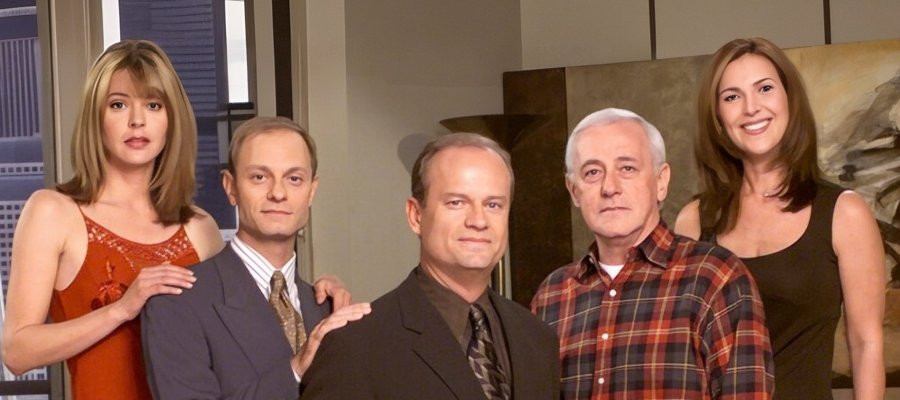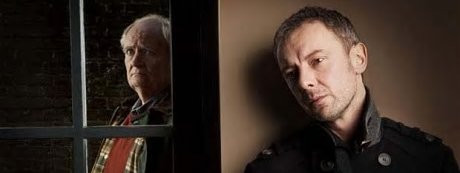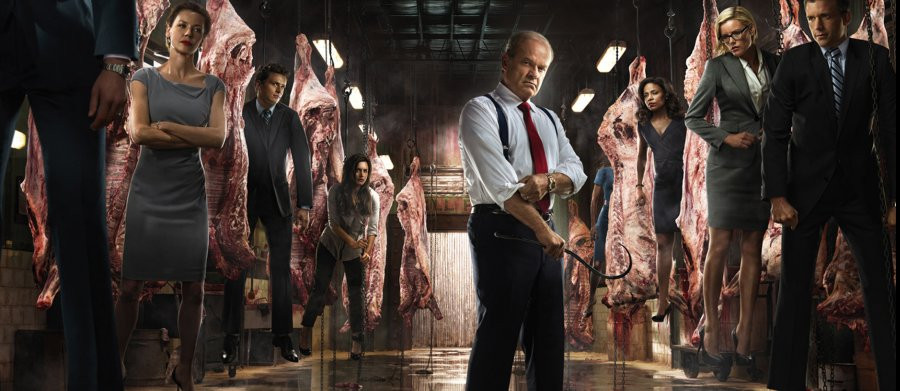
Boss
2011 - United StatesReview: John Winterson Richards
There is a strange compulsion among successful comic actors to want to prove themselves in dramatic roles too. Tragedy has always been of higher status than Comedy, but there is also the actors' professional desire to prove their versatility. After all, that is why most went into acting in the first place, to be as many different people as possible. So it works the other way too, with respected dramatic stars sometimes trying their hand at Comedy. The result is often pretty grisly.
For their part, the comedians usually have enough acting experience to make acceptable tragedians. They tend to be tucked further down the bill in smaller parts and their presence usually helps with the marketing. Most acquit themselves well enough on their own terms, some very well indeed. However, there is a reason for the long established division between Comedy and Tragedy. The public mind likes to pigeon hole. The viewer may admire a really good performance by a familiar comic actor in a drama - like Ted Danson in 'Damages' - but still be waiting for him to deliver the punchline.
Danson's Cheers co-star Kelsey Grammer is exceptional in that he jumped off the high board and into the deep end of serious drama in Boss, and immersed himself so completely that all trace of the beloved comedian was forgotten very quickly. It helped, but made it all the more courageous, that he played an obnoxious character as far removed from his amiable Frasier Crane as it is possible to imagine.

Tom Kane - the name immediately suggests Cain of Cain and Abel - is a hard, arrogant, ruthless machine politician who has risen to become the Mayor of Chicago. He is corrupt in every sense. He has no scruples about legality or ethics. There is no hint of Spirituality or Higher Purpose about him. He talks, sometimes earnestly, about helping his City and its People, and perhaps he sometimes means it at the time and for a little while - at least to an extent - but it is ultimately just a means to an end, and that end is the maintenance of his own political power.
This is under threat from several directions at once - including possible changes in the State government, mutiny in the City Council, and a tenacious investigative journalist - when he is suddenly faced with another threat that puts his political war on multiple fronts in the shade. He is diagnosed with dementia with Lewy bodies (DLB), which is basically the even nastier brother to Parkinson's Disease. He faces total mental and physical collapse.
At this point the audience might assume it knows where the story is going. We have seen it before - when Grammer played a singing Scrooge in 'A Christmas Carol.' Clearly this is going to force him to take a look at his life: according to the standard Hollywood playbook, he is obviously going to learn "lessons," and use his remaining time to try to turn his life around and maybe try to undo some of the harm he has done. We are ready for a good old fashioned redemption story
...which never comes - no, not a bit of it. Kane's obsession becomes holding on to his power to the very end. It is basically all he has left. He makes gestures towards his distant wife and his estranged daughter, but the women see only political calculation and self pity in his attempts, and they are probably right. His increased emphasis on his "legacy" as Mayor is similarly an extension of his own egotism more than concern for the real needs of his City and its inhabitants.
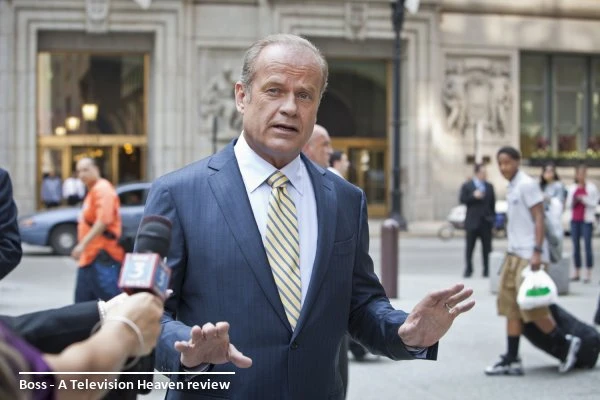
So a disease so horrible that most of us, one hopes, would not wish it on our own worst enemies, actually makes Kane even more unsympathetic. He hides it out of political necessity and keeps it at bay with secretly obtained medication. Yet his life seems so joyless that one cannot help wondering why he bothers.
At this point, the audience too begin to wonder why they are bothering. Most did not. After a promising start, probably due to Grammer's name, the show's ratings dropped like a stone, and it was only the Starz network being unusually supportive, because they knew they had a high quality product, that enabled it to last for two seasons.
Yet, for the few that managed to stick with it, 'Boss' became compelling viewing, because it really is a quality product, and not just by Starz standards. While it exaggerates, it is prepared to ask hard questions about the nature of modern democratic politics - not least about whether it really is democratic when the system is being manipulated by the likes of Kane and his rivals. Where more mainstream political drama dilutes this with a strong dose of sentimentality, 'Boss' is uncompromising - which is probably why it never made the mainstream - and where the likes of House of Cards keep the viewer at a safe emotional distance by being openly satirical, 'Boss' maintains a brutally realistic style throughout.
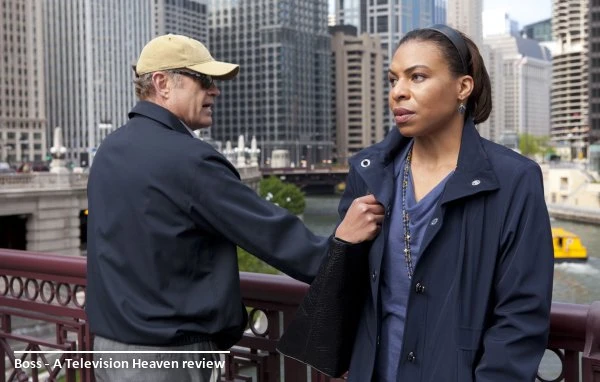
This is strong stuff and not for every stomach. It is kept watchable only by a truly mesmerising performance from Grammer. He deserved the Golden Globe he won for the role and more besides - which he might have got had more people watched the show. It is one of the greatest studies of raw political power in the history of television. Even when the events surrounding him begin to border on the absurd, the character remains strangely credible. This man could exist and probably does. We never get to like Kane, but we cannot help being fascinated by him.
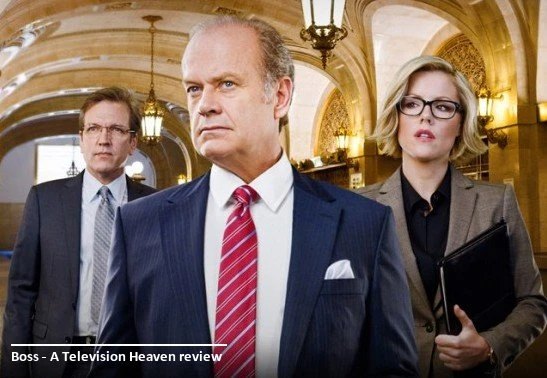
Sometimes he is the traditional alpha male leader, bullying his staff, from whom he demands, and usually gets, a level of commitment he probably does not deserve. A scene in which he tells a subordinate that he does not like the Oxford comma but does not insist on the point is very telling. If that guy wants to have any sort of career in the City of Chicago, he will never use an Oxford comma again.
It is what happens when this leadership is challenged or obstructed that really defines Kane and makes him so compelling. Then the bully becomes the player. He is engaged in a permanent game of three dimensional chess - a game at which he excels and which he seems to enjoy - which becomes four dimensional when his own mind begins to turn against him. Our dislike of the character does not diminish our interest in wanting to see how he is going to get out of one apparently impossible position after another.
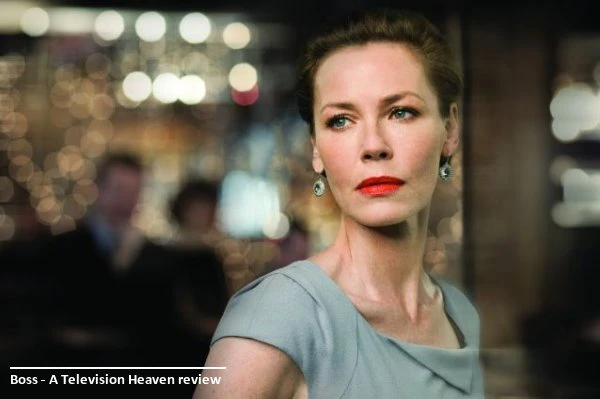
Although Grammer is basically the whole show, due credit should also be given to a very strong supporting cast, most notably Connie Nielsen as Kane's equally ruthless wife, Kathleen Robertson as his increasingly ruthless aide, the great Daniel J Travanti as a ruthless power broker, and Sanaa Lathan as an idealist who develops a ruthless streak when Kane recruits her as his chief of staff. Perhaps all this ruthlessness goes too far in that we never really feel much more sympathy for any of the other characters than we do for Kane. It is also wrong to imply that absolutely everyone in politics is a psychopath. Yet the point is well made that the worst thing about the Kanes of this world is the corrosive effect they have on those whose lives they touch, especially those immediately around them.
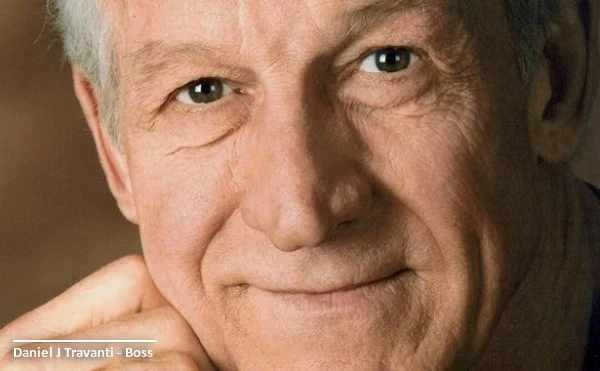
That power corrupts is a sour truth and people did not really want to hear it in 2010 when Obamamania was still strong, and America wanted to believe in politics as a vehicle for "hope" and "change." It is no coincidence that 2012, the year that its low ratings made the final cancellation of 'Boss' unavoidable was also the year Barack Obama was re-elected as President with little difficulty.
For there is a subtext to all this of which most Americans in the target market for serious political drama would have been well aware. Grammer is one of the very few openly Republican stars in Hollywood - or rather major players whose commercial power allows them to be open about their political beliefs. There was a strong feeling among Republicans that the news media had failed to investigate and publicise Mr Obama's involvement in the Democratic machine that ran Chicago. Although there were no substantial allegations of corruption against Mr Obama himself, he had been a leading member of an organisation that had long been notorious, even by the standards of American big city politics, for inhabiting the grey area between politics and extortion, legality and illegality. It is typical of this tradition that immediately after Mr Obama's election to the Presidency in 2008, the Senate seat he vacated as a result was in effect sold by the State Governor, who was later jailed for it. Republicans felt that more attention should be drawn to this political culture.
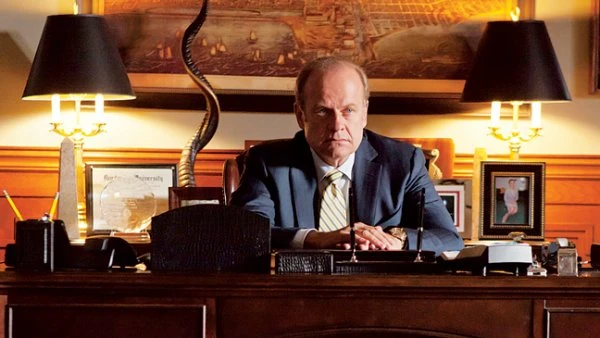
So Grammer's decision to set 'Boss' specifically in Chicago rather than a fictional city could only have been interpreted as an overtly political act. That was underlined by the unflattering portrayal of Democratic politicians throughout the series. Even the theme song, 'Satan, Your Kingdom Must Come Down' was seen as a direct attack on Chicago's political culture, and therefore on the Democratic Party and Barack Obama. While it could be argued that 'Boss' only did to the Democrats what many, many other Hollywood projects had done to Republicans, it was a commercially disastrous decision, especially in 2010. It cost 'Boss' more than half of its potential audience, and most of the rest were put off either by the unpleasant characters or by that pigeon holing of Comedy and Tragedy in the public mind - for, good as his performance was, viewers simply did not want to see Grammer, that nice Dr Crane, being so nasty.
Viewed today, in 2020, without that context, and when a more cynical attitude to politics prevails, 'Boss' looks more and more like a classic political drama, perceptive and unsentimental, and driven by a memorable leading performance that took enormous risks and delivered a powerful punch.
John Winterson Richards
John Winterson Richards is the author of the 'Xenophobe's Guide to the Welsh' and the 'Bluffer's Guide to Small Business,' both of which have been reprinted more than twenty times in English and translated into several other languages. He was editor of the latest Bluffer's Guide to Management and, as a freelance writer, has had over 500 commissioned articles published.
He is also the author of ‘How to Build Your Own Pyramid: A Practical Guide to Organisational Structures' and co-author of 'The Context of Christ: the History and Politics of Rome and Judea, 100 BC - 33 AD,' as well as the author of several novels under the name Charles Cromwell, all of which can be downloaded from Amazon. John has also written over 90 reviews for Television Heaven.
John's Website can be found at John Winterson Richards
Books by John Winterson Richards:
Seen this show? How do you rate it?
Seen this show? How do you rate it?
Published on July 14th, 2020. Written by Laurence Marcus for Television Heaven.




